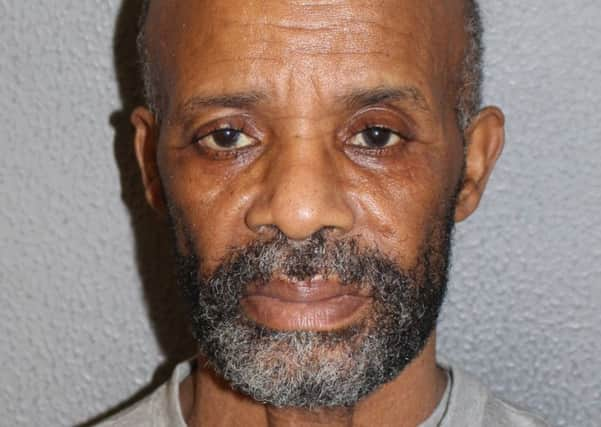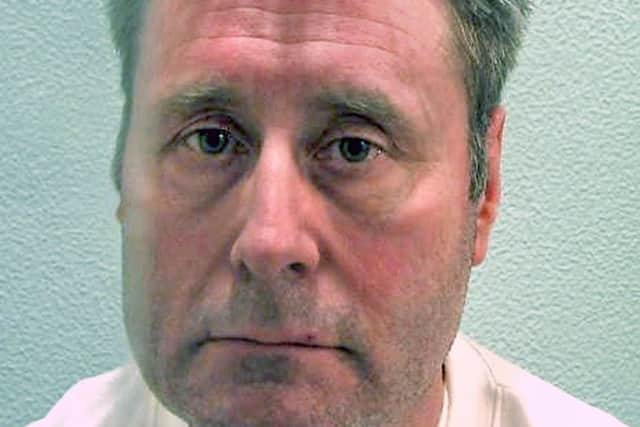Dani Garavelli: Violent men who destroy faith in justice


Last week, we saw tempers flare over two more cases in which misogyny was writ large (both on the part of the perpetrator and of the establishment): the jailing of Theodore Johnson, who killed three partners over 35 years, and the imminent release on parole of “black cab” rapist John Worboys after serving just nine years.
Perhaps the connection between the two isn’t immediately obvious. Johnson is a murderer; Worboys a sex offender. Johnson is starting his sentence; Worboys is about to be set free. But in both cases, their victims were treated with contempt. And both have, at some point, been judged to pose no serious threat to society.
Advertisement
Hide AdAdvertisement
Hide AdLet’s start with Johnson. In 1981, the Jamaican-born garage worker threw his wife Yvonne off the balcony of their home in Wolverhampton, after hitting her with a vase. On this occasion, he was convicted of manslaughter on the grounds of provocation.


After he was released, he began a relationship with another woman, Yvonne Bennett. He went on to strangle her with a belt as their baby slept in 1993. This time, he pleaded guilty to manslaughter on the grounds of diminished responsibility. The court accepted he was suffering from a depressive illness so, instead of being jailed, he was sent to a secure psychiatric unit.
It says something about the criminal justice system’s attitude towards domestic violence that two such killings should be accepted as manslaughter, but the story gets worse from here on in. Within a year, Johnson was being allowed out on escorted community parole and in mid-1995, he was given unescorted leave to spend two days a week at furniture restoration course.
In 1997, he applied for and secured a conditional release. He convinced the authorities he was no longer a danger, although he was supposed to tell them if he struck up a new relationship. He didn’t. Even though he was already seeing Angela Best when he got out, he kept schtum. He continued to withhold this information for the next 15 years, so Best was never officially informed of his previous crimes. In December 2016, Johnson attacked her with a claw hammer and throttled her with her dressing gown. Again, he planned to fight the murder charge, but changed his plea to guilty on the first day of his trial.
Like Johnson, Worboys is a serial offender. A convincing liar, he preyed on lone women, telling them he had won a lot of money and offering them a drink to celebrate; he then drugged and sexually assaulted them.


When Worboys was arrested, the Metropolitan Police found a “rape” kit in the back of his taxi. It took a long time to catch him, though, because the first women to report him in 2003 and 2007 were not believed. Incredibly, when the High Court ruled those women’s human rights had been breached, the Met appealed the judgment in an attempt to avoid paying compensation.
Some people (mostly men) have responded to the backlash against the Parole Board’s decision by providing lengthy explanations on Worboys’ sentencing and release; these are not irrelevant, but they do not counter the legitimate anger felt by many women. We understand how it happened, thank you. But that doesn’t make it right.
For those who haven’t followed the case, Worboys was given an indeterminate Imprisonment for Public Protection sentence. IPPs were introduced in 2005 in England and Wales for offenders who were considered dangerous, but whose convictions were not serious enough merit a life sentence. IPP prisoners were given a minimum tariff, but could be kept in as long as the Parole Board believed they still posed a risk. The knowledge Worboys, who was convicted of 19 charges of drugging and sexually assaulting 12 women passengers, and one rape, had been given an IPP may have influenced the Crown Prosecution Service’s decision not to prosecute him in connection with 100-plus other alleged attacks, but we cannot be sure because there is no transparency.
Advertisement
Hide AdAdvertisement
Hide AdIn 2012, IPPs were scrapped (rightly so, as they punished people for crimes of which they had not been convicted). But, as of August last year, there were still 3,300 plus IPP offenders behind bars with no release date, much to the chagrin of Parole Board chairman Professor Nick Hardwick.
It may be that dismay over the IPP debacle played into the Parole Board’s decision to release Worboys after nine years (one more than his minimum tariff), but, once again, we cannot be sure because there is no transparency.
In fact, we know nothing about the Parole Board’s rationale because it operates behind closed doors. We don’t know the composition of the three-member panel (was it all-male?); we don’t know how Worboys convinced them he was no longer a threat and we don’t know what conditions will be attached to his licence (one can only hope he will be more closely monitored than Johnson).
But women have every right to be suspicious. Not least because Worboys’ plausibility was a fundamental feature of his MO; not least because the main sex offenders programme used in England and Wales was scrapped last year after it was found to increase re-offending; not least because Worboys denied the offences at his trial and is understood to have gone on denying them after his conviction. Need I go on?
On Thursday, Hardwick said he planned to launch a consultation on how the Parole Board could become more open. He is also expected to be brought before the House of Commons Justice Committee to explain how this specific decision was reached. Good. I hope the CPS also revisits its decision not to prosecute Worboys for his many other alleged offences, and examines if anything can be done to bring fresh charges now.
As a passionate believer in rehabilitation, I would not want anyone locked up without hope of reprieve. But the murder of Angela Best stands as stark testimony of how easy it is for the authorities to get it wrong when it comes to risk assessing violent offenders and how high the stakes are when they do.
After all that has already gone awry with this case, a public explanation of the thinking behind Worboys’ imminent release is the very least his victims, and any future women who stray into his path, deserve.